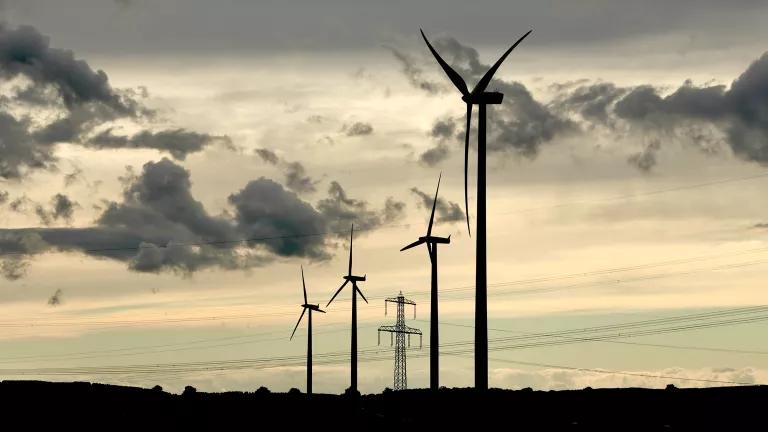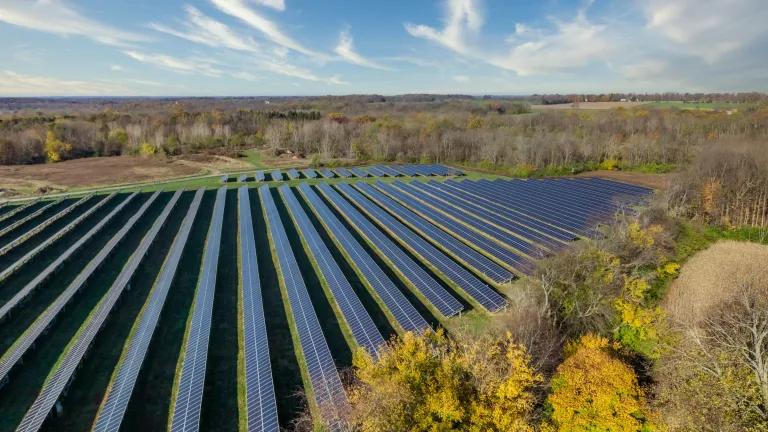“Today no area holds more promise than our investments in American energy,” said President Obama, in his annual State of the Union address. In addition to wind and solar energy, and energy efficiency, the president also called for investment in new technologies that will “shift our cars and trucks away from oil.”
Breaking free from the oil monopoly will give consumers choice at the pump and protection from gas price spikes. And if we develop the right kind of alternative fuels for our vehicles--clean, sustainable, low-carbon fuels, or advanced biofuels—we can reduce global warming pollution as well. What’s more, encouraging the growth of the advanced biofuel industry can provide an economic boost for the country, according to research by Environmental Entrepreneurs (E2), an NRDC affiliate. The group’s new website, Fueling Growth, tracks the growth of the advanced biofuel industry, and profiles several innovative new companies that are part of this mini-boom.
E2’s latest survey shows that more than 80 advanced biofuel businesses have sprouted up in dozens of states across the country. California alone is home to 30 of these innovative companies, which do everything from biorefinery plant design to finding new sources of renewable fuels.
While the production of sustainable biofuels is fertile ground for scientific innovation, the industry itself isn’t solely high-tech. For every scientist who figures out how to squeeze fuel out of plant waste, there’s a farmer who’s suddenly got a market for his leftover corn stalks or wheat straw; the worker who runs the machinery that turns that straw into liquid fuel; the entrepreneur who starts a biofuel distribution company; or the truck driver who plies a new route from the biorefinery to the fuel pump. That’s how this industry is creating jobs not just in California, but all over the country.
By 2015, 26 new biorefineries, dedicated to making advanced biofuels (not corn ethanol, which fails to deliver greenhouse gas reductions, in addition to degrading soil and polluting water) will be open for business. These refineries will be located in places like Hugoton, Kansas, and near Tupelo, Mississippi, where the state has instituted production incentives to attract biorefineries. The new refineries alone will produce about 700 million gallons of clean, renewable, domestic fuel, and have the potential to create more than 18,000 jobs.
E2 calculates that if state and the federal clean fuel standards are implemented as planned, the entire advanced biofuel industry could create up to 48,000 jobs by 2015. Low carbon fuel standards, which reduce global warming pollution, are critical to the continued growth of this industry. (These standards also encourage the development of other clean alternative fuels and electric transport as well.)
“There has to be a market that we can forecast before we start scaling up and do more hiring,” says chemist Virginia Klausmeier, CEO of Sylvatex, a company that started in a garage in Eugene, Oregon, and makes a clean-burning diesel fuel additive.
At the moment, the advanced biofuels market is largely spurred by the federal renewable fuels standard, military interest (the military sees its reliance on oil as a national security risk), and by California’s Low Carbon Fuel Standard. Propel Fuels, a biofuel distribution company that is setting up biofuel stations and pumps in California, moved its operations from Seattle to California in 2008. “State policies have helped to create a level playing ground for us to compete with the existing petroleum industry," CEO Matt Horton told the LA Times.
The military’s interest in biofuels alone could generate $10 billion in economic activity, according to E2. Both the Navy and the Air Force plan to replace half their petroleum-based fuels with biofuels by 2020, and have already begun demonstrating the viability of plant-based jet fuel. The Navy recently launched its Great Green Fleet at RIMPAC, the naval exercises off the coast of Hawaii, flying a host of biofuel-powered aircraft off the deck of the USS Nimitz, one of the world’s largest warships, which was also running on a biofuel blend.
Boosting our production of advanced biofuels—those that do not interfere with food production and are produced with an eye to reducing environmental impacts--is critical to breaking our dependence on oil, providing consumers a choice at the pump, and shifting this country toward a clean energy future. Creating smart policies to develop advanced biofuels now will pay us back in spades—in good jobs, in clean air, in healthier soil and water, and in a more stable climate.



